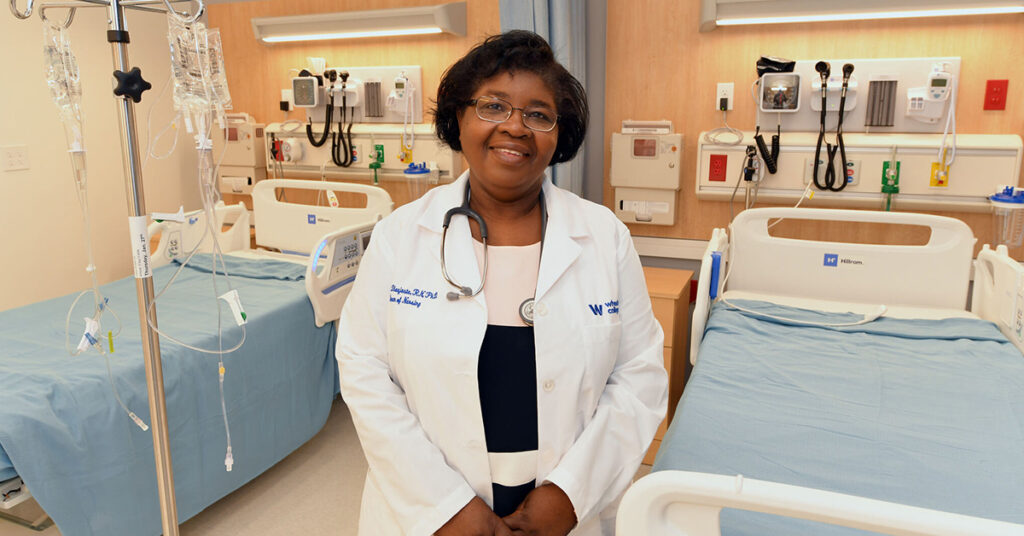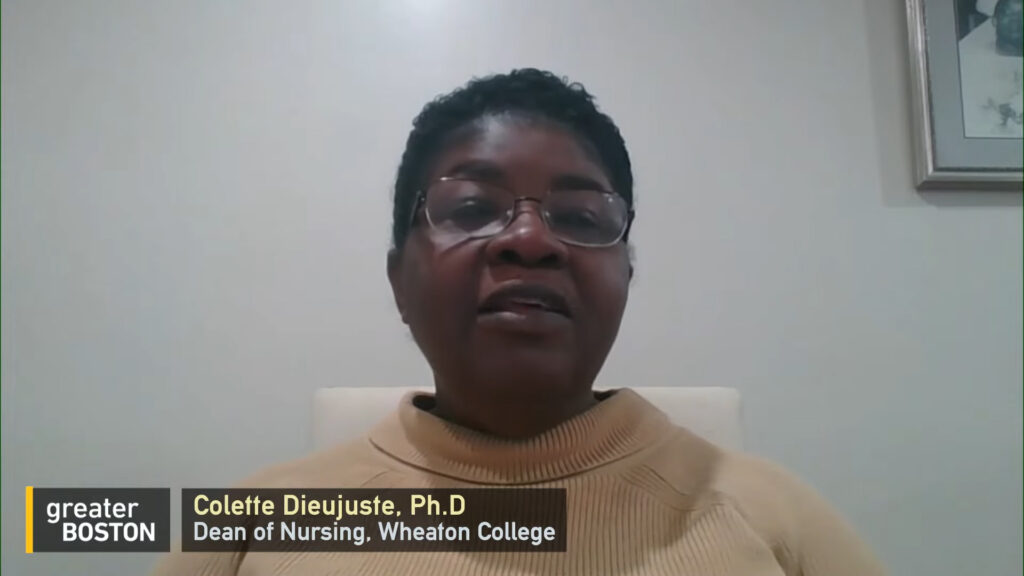Colette Dieujuste talks about maternal mortality on GBH
Wheaton dean of nursing shares insight on childbirth outcome disparities among Black women
A new study shows that Black mothers experience the worst childbirth outcomes of any racial group—regardless of socioeconomic status.
Colette Dieujuste, Wheaton College’s dean of nursing, weighed in on the study published by the National Bureau of Economic Research in a February 15 story and video interview on Boston-based news station GBH.
Dieujuste is a member of the UMass Boston Birth Equity group, which is conducting research on why the maternal mortality rate is higher for Black mothers. According to the Centers for Disease Control and Prevention, Black women in the U.S. are three to four times more likely to die from pregnancy-related deaths compared to women of other races.
Also, the infant mortality rate for the richest Black mothers is 437 per 100,000 live births while the rate for the poorest white mothers is 350 infants per 100,000 births, according to the National Bureau of Economic Research study.
In an interview with GBH reporter Crystal Haynes, Dieujuste said Black women often feel they aren’t being heard when issues arise in a health care setting.
“When we talk to Black women about their experiences, they always feel like there is a problem that they aren’t being heard. … When they tell health care providers about things that are going on, they are not getting results. If women are not being heard about the issues and their problems, that’s going to lead to what we are seeing today: maternal morbidity and Black women dying … and babies dying, also,” said Dieujuste, whose clinical expertise is in the area of perinatal and obstetrical nursing. She has practiced as a staff nurse in labor and delivery and has been a perinatal/child clinical nurse specialist.
“It is really important that we pay attention to what is going on with these Black women,” she said. “We need to study and see how to decrease that rate. We cannot wait.”
Wheaton College is enrolling its first cohort of nursing students this fall. The college’s bachelor of science in nursing program puts a special focus on tackling the interconnected issues of health equity, gender and race-based disparities in health care, and global threats to health.


